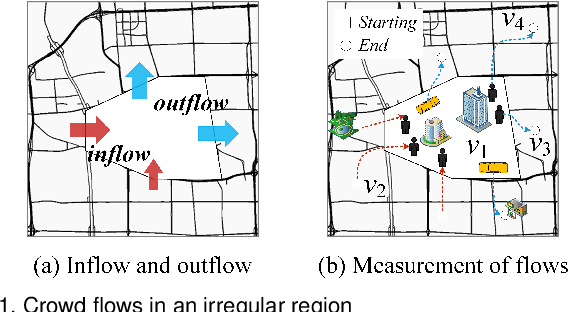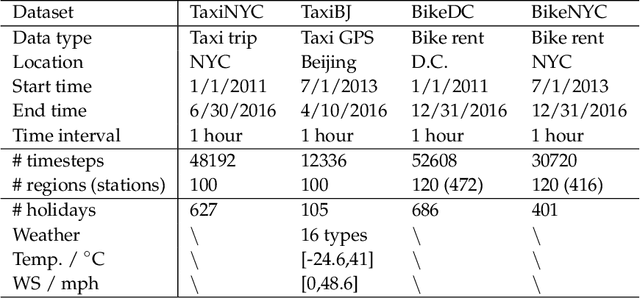Predicting Citywide Crowd Flows in Irregular Regions Using Multi-View Graph Convolutional Networks
Paper and Code
Mar 19, 2019



Being able to predict the crowd flows in each and every part of a city, especially in irregular regions, is strategically important for traffic control, risk assessment, and public safety. However, it is very challenging because of interactions and spatial correlations between different regions. In addition, it is affected by many factors: i) multiple temporal correlations among different time intervals: closeness, period, trend; ii) complex external influential factors: weather, events; iii) meta features: time of the day, day of the week, and so on. In this paper, we formulate crowd flow forecasting in irregular regions as a spatio-temporal graph (STG) prediction problem in which each node represents a region with time-varying flows. By extending graph convolution to handle the spatial information, we propose using spatial graph convolution to build a multi-view graph convolutional network (MVGCN) for the crowd flow forecasting problem, where different views can capture different factors as mentioned above. We evaluate MVGCN using four real-world datasets (taxicabs and bikes) and extensive experimental results show that our approach outperforms the adaptations of state-of-the-art methods. And we have developed a crowd flow forecasting system for irregular regions that can now be used internally.
 Add to Chrome
Add to Chrome Add to Firefox
Add to Firefox Add to Edge
Add to Edge